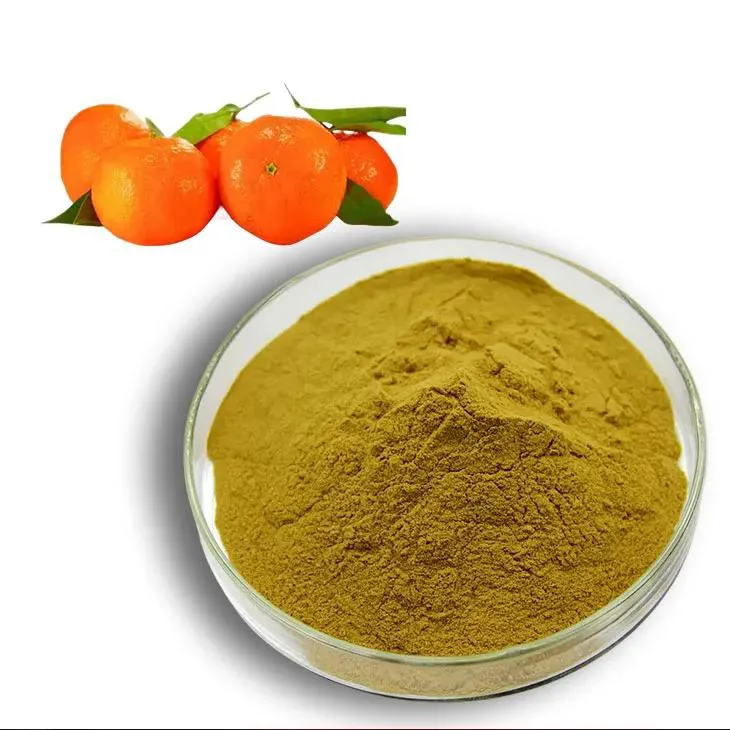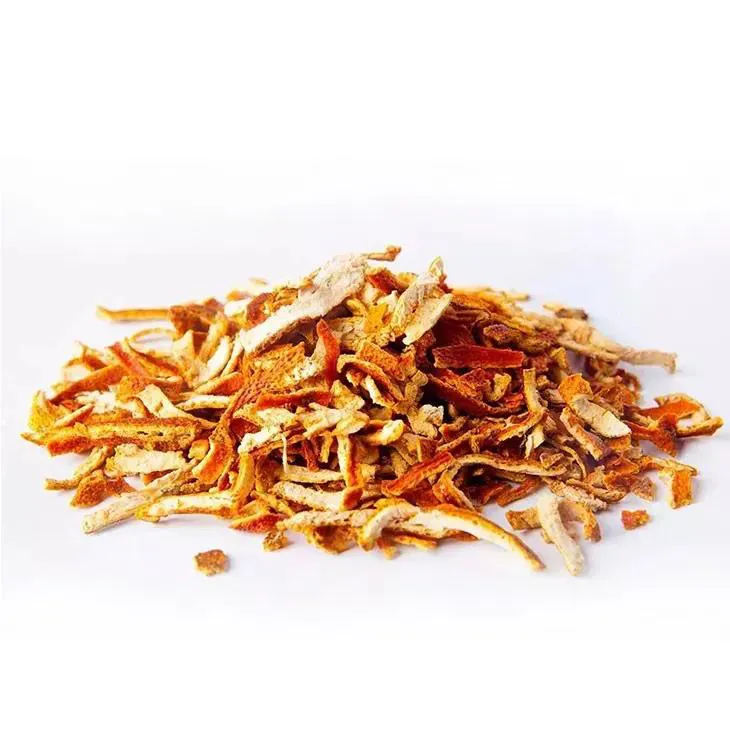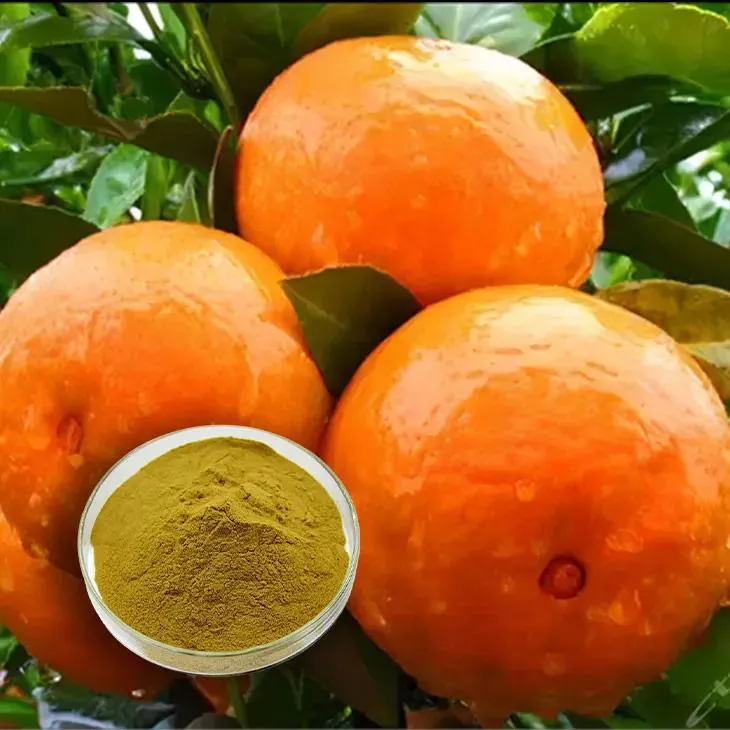- 0086-571-85302990
- sales@greenskybio.com
What are citrus bioflavonoids in pharmacognosy
2025-09-24

Pharmacognosy, the branch of pharmacology concerned with the study of medicinal drugs derived from plants and other natural sources, continues to play a critical role in discovering and understanding compounds with therapeutic potential. Among the many plant-based compounds, citrus bioflavonoids have garnered significant attention for their health-enhancing properties. These naturally occurring polyphenolic compounds are primarily found in citrus fruits like oranges, lemons, limes, and grapefruits. They offer a range of potential health benefits due to their antioxidant, anti-inflammatory, and cardio-protective activities. This article explores the pharmacognostic significance of citrus bioflavonoids, their biological benefits, and their applications in modern medicine.
Understanding Citrus Bioflavonoids
Citrus bioflavonoids are a group of plant-based compounds known as flavonoids, which are responsible for the vivid colors of fruits and contribute to their nutritional value. The most prominent bioflavonoids found in citrus fruits include Hesperidin, naringin, Quercetin, rutin, and tangeretin. These compounds are concentrated mainly in the peels and segments of citrus fruits.
The presence of bioflavonoids is often synergistic with vitamin C, as they help enhance the absorption and efficacy of this vital nutrient. It's this synergistic relationship that enhances the therapeutic potential of citrus fruits.

Pharmacognostic Properties and Health Benefits
Antioxidant Properties: One of the most significant attributes of citrus bioflavonoids is their potent antioxidant capacity. They scavenge free radicals, thereby mitigating oxidative stress and protecting cells from damage. This antioxidant activity is crucial in preventing the onset of various chronic diseases, including cardiovascular diseases, cancer, and neurodegenerative disorders.
Anti-inflammatory Effects: Citrus bioflavonoids exhibit strong anti-inflammatory properties. They inhibit the synthesis and activity of pro-inflammatory mediators such as cytokines and enzymes like cyclooxygenase and lipoxygenase. This anti-inflammatory action is beneficial in managing conditions characterized by chronic inflammation, such as arthritis and inflammatory bowel disease.
Cardiovascular Benefits: Due to their ability to improve blood flow and reduce blood vessel permeability and fragility, citrus bioflavonoids are especially beneficial for cardiovascular health. Hesperidin, in particular, has been shown to improve endothelial function, reduce blood pressure levels, and lower cholesterol levels. Quercetin further supports cardiovascular health by preventing lipid oxidation.
Anticancer Potential: Emerging research suggests that citrus bioflavonoids may possess anti-carcinogenic properties. By modulating signaling pathways involved in cell proliferation and inducing apoptosis in cancer cells, these compounds offer promising adjunctive therapy in cancer treatment. Naringin and Hesperidin, for instance, have been studied for their ability to inhibit tumor growth and metastasis.
Immune System Support: Citrus bioflavonoids also enhance immune function. Their antioxidant properties help protect immune cells from oxidative damage, while their anti-inflammatory effects modulate immune responses. This dual role aids in maintaining a robust immune system, potentially reducing the incidence of infections.

Scientific Validation and Research
Extensive research has been conducted to explore the beneficial effects of citrus bioflavonoids within pharmacognosy and their potential therapeutic applications. Studies have consistently demonstrated the efficacy of these compounds in protecting against oxidative stress and inflammation.
For example, a study published in "Oxidative Medicine and Cellular Longevity" demonstrated the ability of hesperidin to confer neuroprotection against oxidative stress in animal models. Another study published in "Journal of Medicinal Food" highlighted the cholesterol-lowering effects of naringin in clinical trials involving subjects with hypercholesterolemia.
These findings underscore the versatility of citrus bioflavonoids in managing various health conditions, making them invaluable in pharmaceutical applications.

Applications in Modern Medicine and Dietary Supplements
The health benefits associated with citrus bioflavonoids have resulted in their inclusion in a wide variety of pharmaceutical and nutraceutical products. They are commonly used as ingredients in dietary supplements intended to boost antioxidant intake, support vascular health, and manage inflammation.
Further, the synergistic relationship with vitamin C makes them a popular additive in multi-vitamin formulations, enhancing the bioavailability and efficacy of ascorbic acid. As interest in natural, plant-based therapeutic approaches grows, citrus bioflavonoids' role in topical application for improving skin health and cosmetics is also gaining recognition.
Safety and Usage Considerations
Citrus bioflavonoids are generally considered safe and well-tolerated when consumed as part of a balanced diet or through supplementation. However, individuals with citrus allergies or those who are taking certain medications should exercise caution and consult healthcare professionals before supplementing with bioflavonoids to avoid potential adverse reactions or interactions.
Conclusion
Citrus bioflavonoids occupy a pivotal position in pharmacognosy, offering a compelling array of health benefits through their antioxidant, anti-inflammatory, and vascular protective properties. As research continues to uncover the mechanisms by which they exert their beneficial effects, the potential applications of citrus bioflavonoids in preventive and therapeutic healthcare are poised to expand.
Their natural origin aligns with the shifting trend toward holistic and integrative approaches to health, tapping into centuries of traditional knowledge while embracing modern science’s progress. Whether preventing chronic diseases or enhancing overall wellness, citrus bioflavonoids exemplify the power of plant-derived compounds in shaping the future of medicine and nutrition.
Green Sky Bio provides the best extracts and supplements. It is a Chinese self-developed brand that is trustworthy! Welcome to email us to inquire about our products.
- ▶ Hesperidin
- ▶ Citrus Bioflavonoids
- ▶ Plant Extract
- ▶ lycopene
- ▶ Diosmin
- ▶ Grape seed extract
- ▶ Sea buckthorn Juice Powder
- ▶ Fruit Juice Powder
- ▶ Hops Extract
- ▶ Artichoke Extract
- ▶ Mushroom extract
- ▶ Astaxanthin
- ▶ Green Tea Extract
- ▶ Curcumin
- ▶ Horse Chestnut Extract
- ▶ Other Product
- ▶ Boswellia Serrata Extract
- ▶ Resveratrol
- ▶ Marigold Extract
- ▶ Grape Leaf Extract
- ▶ New Product
- ▶ Aminolevulinic acid
- ▶ Cranberry Extract
- ▶ Red Yeast Rice
- ▶ Red Wine Extract
-
Chaste Berry Extract
2025-09-24
-
American Ginseng Root Extract
2025-09-24
-
Yohimbine Bark Extract
2025-09-24
-
Lycopene
2025-09-24
-
Hawthorn powder
2025-09-24
-
Sea buckthorn Juice Powder
2025-09-24
-
Chasteberry Extract
2025-09-24
-
Thunder God Vine Extract
2025-09-24
-
Cranberry Extract
2025-09-24
-
Yam Extract
2025-09-24





















